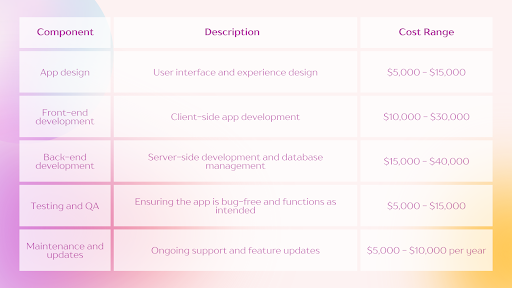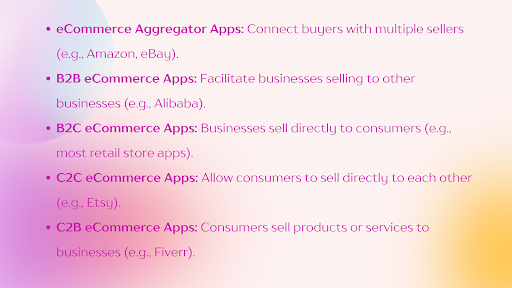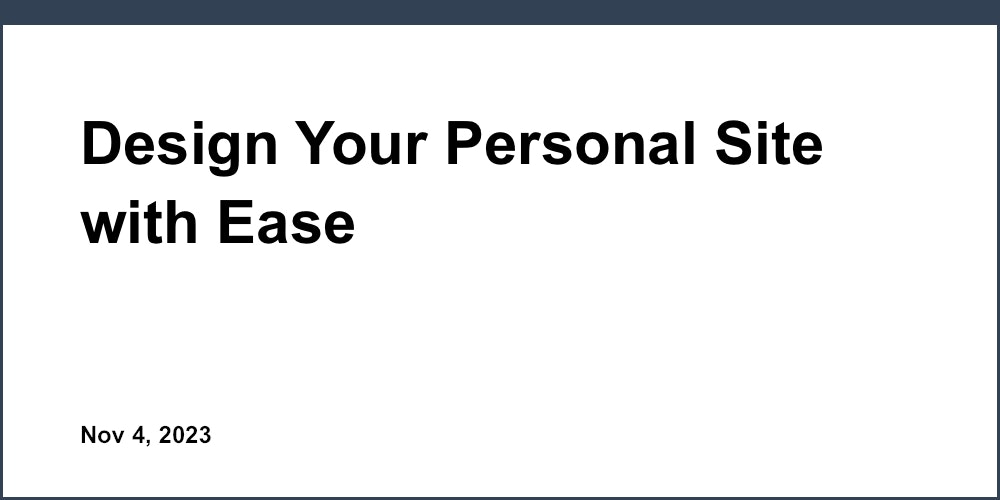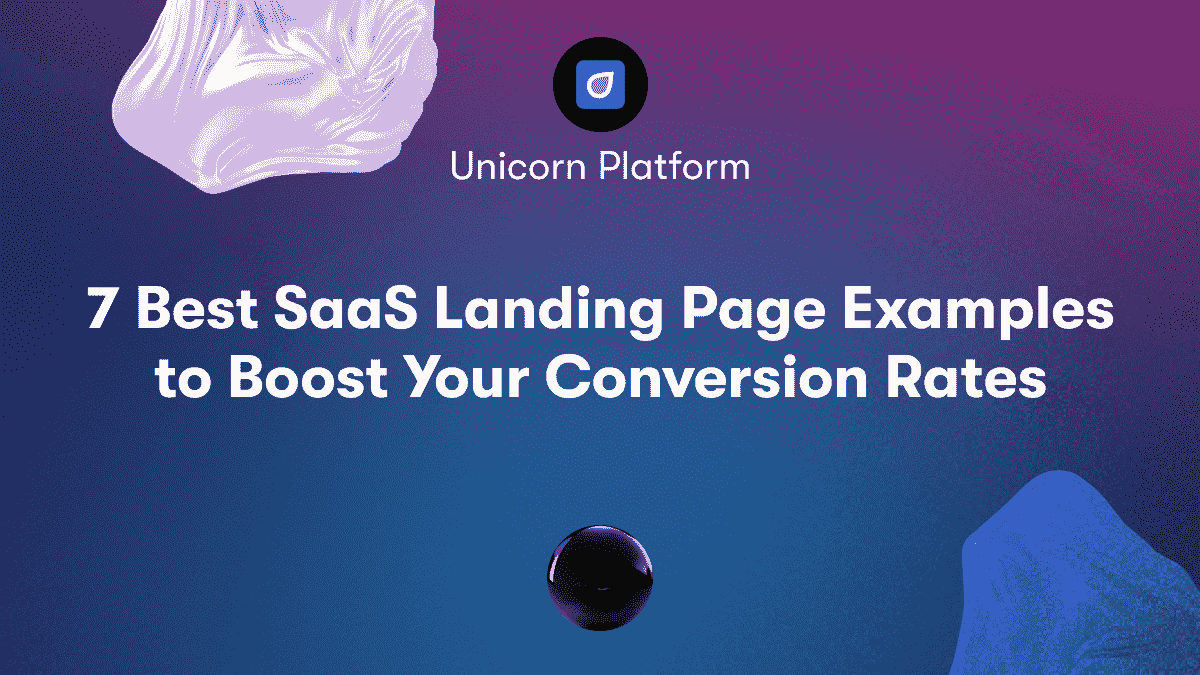
Mobile commerce is projected to account for 72.9% of all e-commerce sales by the end of 2024. Moreover, these days, you can meet a person who doesn’t have a laptop! But surely, everyone has a smartphone. Thus, businesses must understand their losses if they ignore e-commerce mobile app development.
As we delve into the ecommerce app development costs, we consider various factors that influence the overall budget. This article provides a breakdown of these costs and factors contributing to e-commerce mobile app pricing.
E-commerce App Development Cost: What’s in There?
That’s a pretty logical question: "What am I paying my money for?" Some companies still avoid giving a detailed cost breakdown on their websites. They believe this will motivate potential customers to book a call. Wrong! These days, we would even call it a red flag and a good reason to choose a different company.
The following table presents an overview of the app development cost breakdown. This is a snapshot of what you can expect to invest in your projects.

It’s important to note that the numbers provided are average estimations based on our calculations and comparisons of different companies. Again, consider only those companies that speak openly about their e-commerce app development costs.
Basic vs. Advanced Set of App Development Cost Breakdown
We believe that even if you’re limited in budget, you don’t need to sacrifice quality to achieve a decent product. Different businesses have different budgeting for app development, and that’s totally fine.
Therefore, we have developed two different tables outlining the essential features for both basic and advanced e-commerce mobile app development.
Advanced Set of E-commerce Mobile App Development Features
An advanced set of features takes your mobile app beyond just basic functionality and creates a more engaging and personalized shopping experience for users. Here are some key features to consider:
- Enhanced search and navigation - Voice search, advanced filtering, and visual search
- Personalization and user experience - Augmented reality, product recommendations, and loyalty programs
- Convenience and payment options - Guest checkout, multiple payment gateways, and one-click ordering
- Advanced analytics and marketing - Push notifications, in-app analytics, A/B testing
Basic Set of E-commerce Mobile App Development Features
These features are essential for any e-commerce mobile app to function properly and provide a fundamental shopping experience.
- User accounts and login - Simple registration, secure login, and user profile management
- Product browsing and selection - High-quality images, detailed descriptions, and customer reviews
- Shopping cart and checkout - Easy-to-use cart, multiple shipping options, secure checkout, and order tracking
- Basic app functionality - User-friendly interface, fast loading times, offline functionality
Other Cost Factors for E-Commerce Apps to Consider
After you’ve seen the advanced and the basic set, it’s time to decide what set of features must be in your product (and therefore what will be mobile app development expenses). Here are the factors that will help you define the following project scope:
Types of App Development for E-commerce
First things first. Take a look at the following list of e-commerce apps: think of which type describes your app in the most accurate way.

Research and Goal Setting
Analyze your target audience. Look at the competitor apps. What’s good about them? What are the drawbacks? Take notes on some trends that you’ve noticed.
Think of user needs. What pain points can your app cover? What are the typical shopping habits of your TA?
Define what you want to achieve with your app. Is it increasing sales or customer engagement?
Feature Set and Design
Prioritize features based on your goals, budget, and user needs. Focus on creating a smooth, intuitive UX and an attractive interface. E-commerce app design costs can be biting, but they'll surely pay off.
Development and Feedback
Build MVP. Develop a basic version of your app to test it with real users. Encourage user feedback and analyze it to improve the app. Given the complexity of modern e-commerce applications, many businesses are actively seeking python developer jobs to ensure their mobile platforms are robust and scalable.
Conclusion
Developing an e-commerce mobile app involves numerous factors that influence the overall cost. Of course, understanding the cost factors for e-commerce apps won’t make mobile app development expenses smaller. However, this knowledge helps you define the scope of app development features. It will give you significant control over your budget.
A well-designed and functional e-commerce mobile app is surely going to drive sales and make your services competitive. Follow the guidelines outlined in this article, and you will develop an e-commerce mobile app that meets your business needs and delivers a superior shopping experience for your customers.



